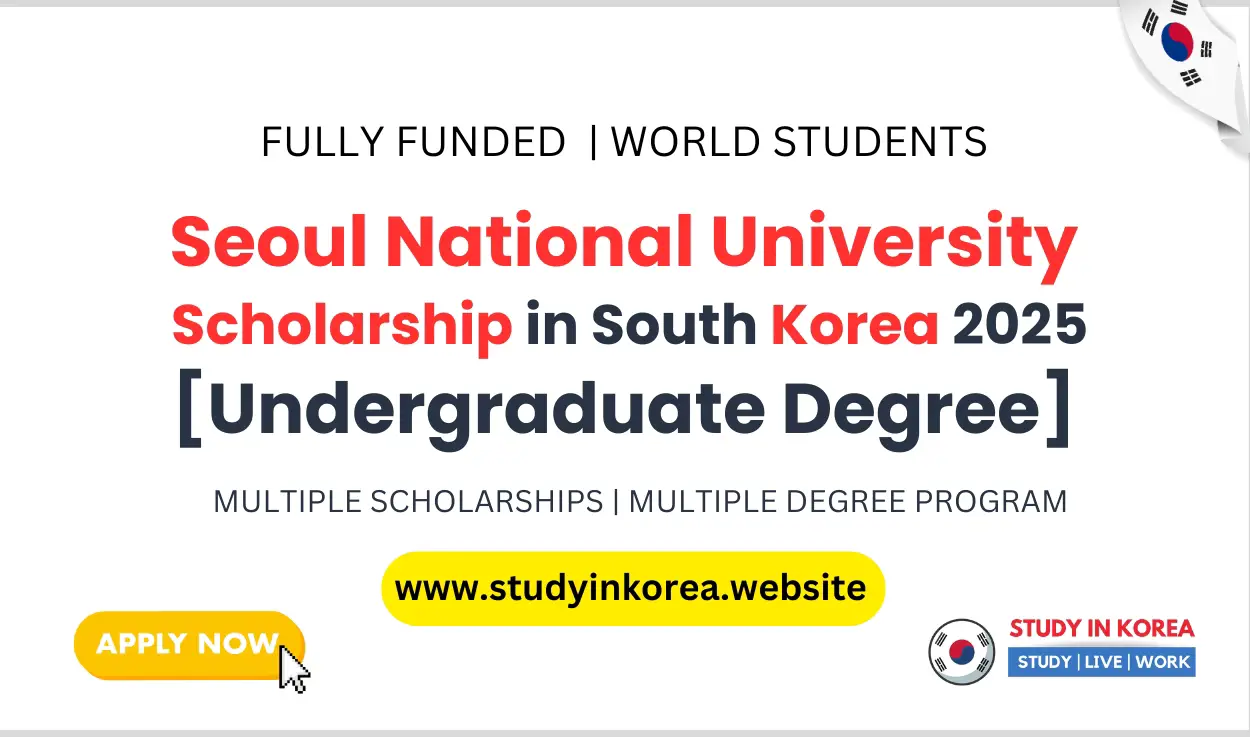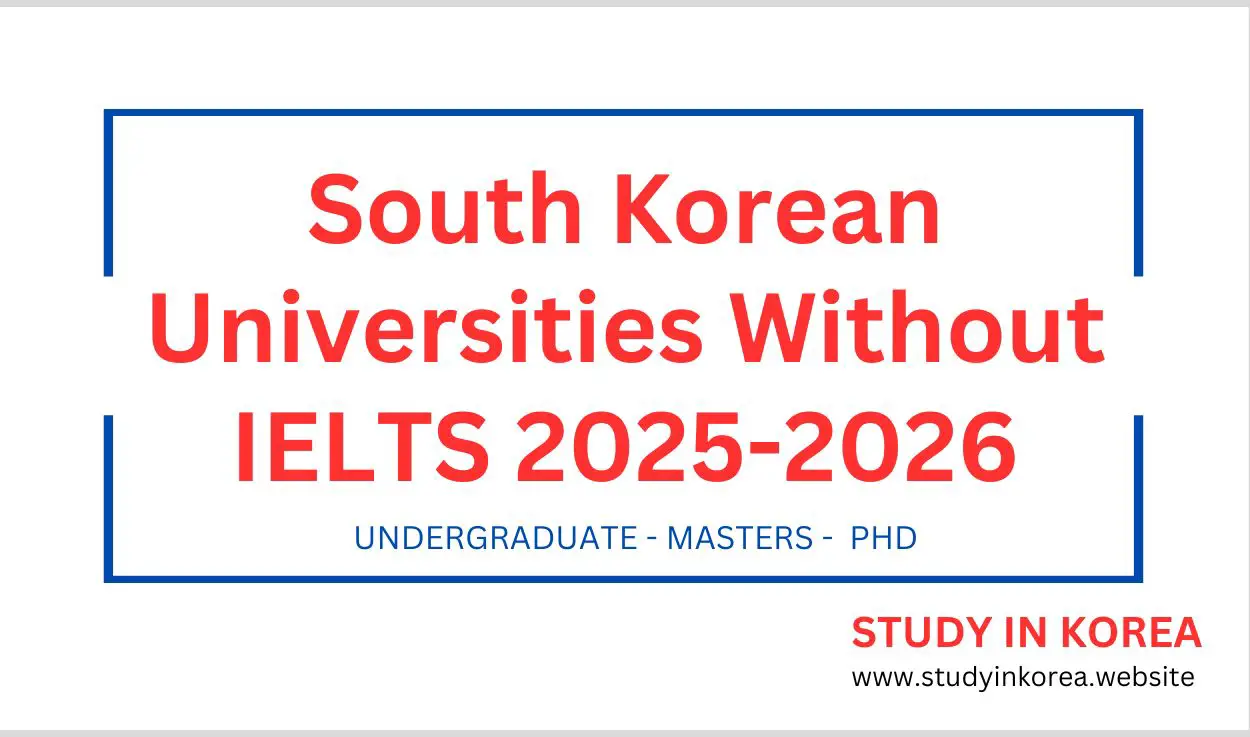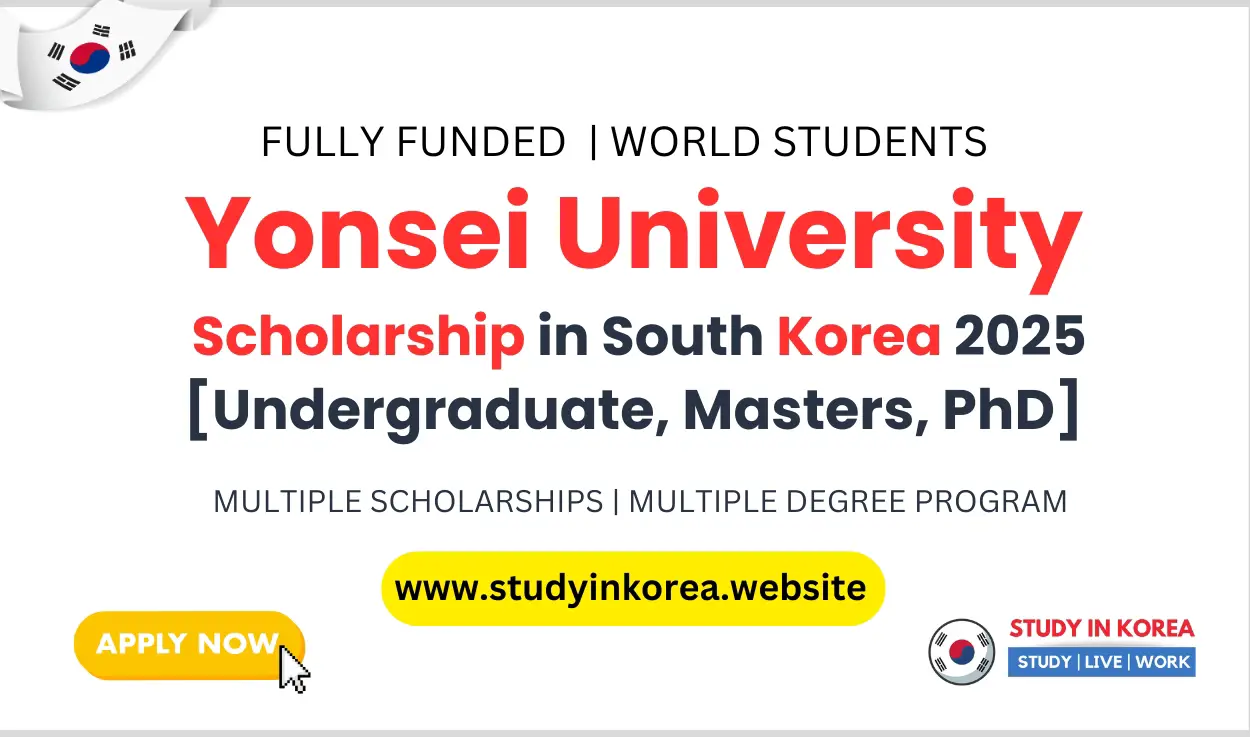
Seoul National University Scholarship 2025 | Fully Funded
Seoul National University is offering international students with Fully Funded Scholarship 2025 Program to study in Korea. In this article, we will explain two phases in which international students can apply, one is before application students can apply for different international scholarship programs and the other is after application.
Did you check – Best South Korean Universities without IELTS 2025
Seoul National University Scholarships in South Korea
Seoul National University, situated in Seoul, South Korea, is a public research institution. It belongs to the prestigious SKY universities and is an integral part of the flagship Korean National Universities. The primary campus is situated in Gwanak, with two supplementary campuses in Daehangno and Pyeongchang.
SNU provides various scholarships and financial aid options for international students, easing the financial burden associated with pursuing higher education. These scholarships may be merit-based, need-based, or tied to specific academic achievements and contributions to the university community.
Host Country: Study in South Korea
Host University: Seoul National University
Financial Assistance: Fully Funded
Degree: Undergraduate Level
Did you check – Yonsei University Scholarship 2025 – South Korea
Before Application Seoul National University Undergraduate Scholarships in South Korea:
#1 Korean Government Scholarship Program:
The Korean Government Scholarship Program (KGSP) is for international students who want to apply for 4-year undergraduate programs at Seoul National University (SNU).
Eligibility Criteria:
- International applicants can apply for this scholarship.
- However, if you plan to study in programs longer than 4 years, like medicine, veterinary medicine, pharmacy, and architecture, you cannot apply for this scholarship.
Number of Scholarships:
- Approximately 20 to 40 students receive this scholarship every year.
Scholarship Value/ Inclusions:
- The full tuition fee is covered for 8 semesters.
- Living expenses of 900,000 KRW per month are provided.
- One economy round-trip airfare is included.
- Korean language training fee for one year is covered.
- Note: Learning Korean is mandatory, and if a student doesn’t achieve TOPIK grade 3 within a year, they can’t enter the degree program.
- Other benefits include medical insurance, settlement, and returning expenses.
Application Period:
- Applications are accepted in September.
Selection Procedure:
- Applicants submit their applications to Korean embassies in their countries.
- The embassies make the first selection.
- The final selection is made by the National Institute for International Education.
#2 Overseas Koreans Scholarship:
The Overseas Koreans Scholarship is for Korean students living abroad who want to pursue undergraduate degrees at Seoul National University (SNU).
Eligibility Criteria:
- Overseas Korean students can apply for this scholarship to study at SNU.
Scholarship Value/ Inclusions:
- Full tuition exemption for a maximum of 8 semesters (subject to conditions being met).
- Living expenses of 900,000 KRW per month for a maximum of 8 semesters.
- Airfare for one economy round trip.
- Korean language training fee exemption at the Language Education Institute for 6 months.
- Medical insurance subscription through a private company.
Application Period:
- Applications are accepted in February or March, once per year, with a recruitment period of about one month.
Selection Procedure:
- Applicants submit their applications online and in print, along with other required documents, to Korean embassies in their countries.
- The embassies conduct the first selection.
- The second selection will be conducted by the Overseas Koreans Foundation.
After Admission Seoul National University Undergraduate Scholarships in South Korea:
#1 Glo-Harmony Scholarship:
Eligibility Criteria:
This scholarship is open to international students hailing from developing countries listed in the DAC catalog of ODA Recipients.
Scholarship Value/ Inclusions:
The subsidized period extends to a maximum of 8 semesters. Successful candidates will benefit from full tuition exemption and receive a monthly stipend of 600,000 KRW to cover living expenses.
Application Period:
Applications are accepted in January and July.
Selection Procedure:
Interested students should submit their applications to SNU’s Office of International Affairs. The initial selection will be conducted by the Office, followed by interviews, and the final selection process conducted by the Samsung Foundation.
#2 Global Korea Scholarship (GKS) – Korean Government Support Program for Self-Financed Students:
Eligibility Criteria:
This scholarship is available for self-financed international students in their 2nd, 3rd, or 4th year of study. To qualify, students must maintain an overall GPA and the previous semester’s GPA above 80 out of a possible 100.
Scholarship Value/ Inclusions:
Selected students will receive approximately 6 million KRW, distributed as 500,000 KRW per month, for a subsidized period of about 12 months.
Application Period:
The application period typically occurs around February.
Selection Procedure:
Applicants are required to submit their documents to SNU’s Office of International Affairs. The Office then forwards the applications to the National Institute for International Education, where the selection process takes place.
#3 Korean War Memorial Foundation Scholarship:
Eligibility Criteria:
This scholarship is open to direct descendants of foreign war veterans who actively participated in the Korean War.
Scholarship Value/ Inclusions:
Selected candidates will benefit from full tuition exemption, subsidized dormitory fees provided by SNU, and a monthly living expenses stipend of 500,000 KRW.
Selection Procedure:
Applicants are required to submit their applications to their respective colleges. The Colleges will conduct the initial selection, after which SNU’s Office of International Affairs will perform the second selection. The Korean War Memorial Foundation will then confirm the selections and the decisions will be announced to the chosen recipients.
Share this content:





